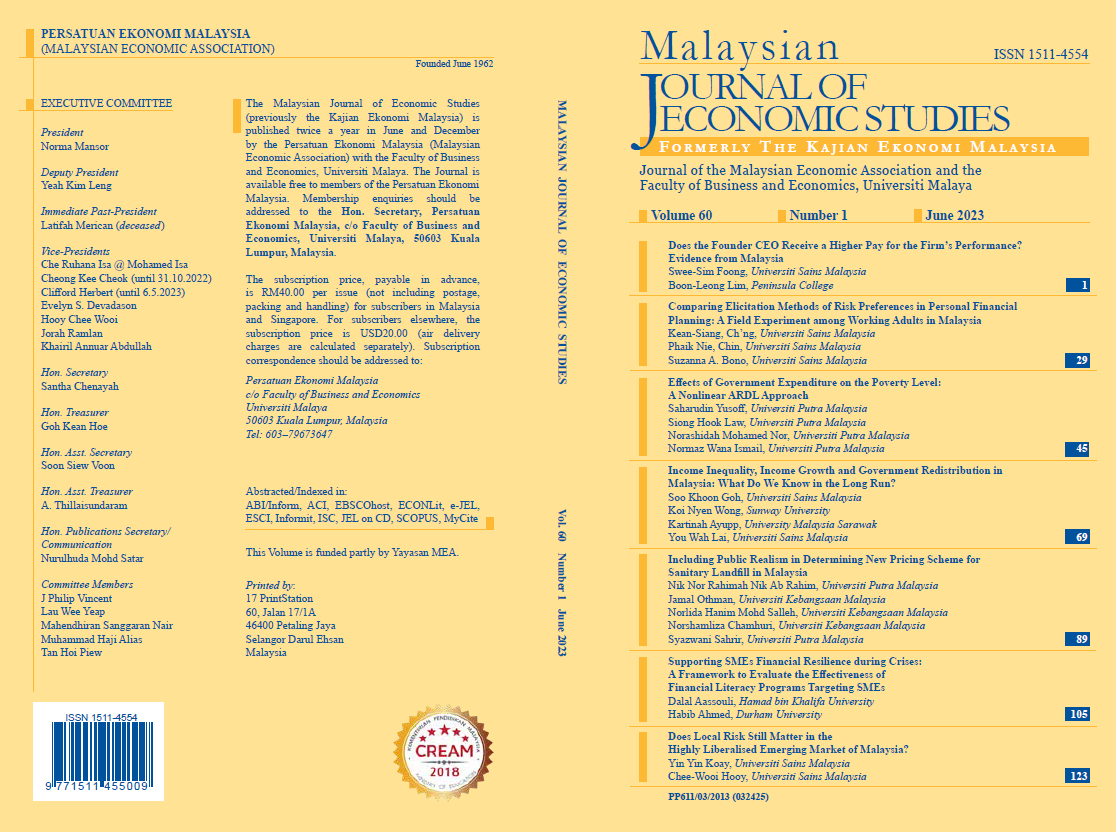Comparing Elicitation Methods of Risk Preferences in Personal Financial Planning: A Field Experiment among Working Adults in Malaysia
Keywords:
Grable and Lytton risk tolerance score, probability weighting function, risk preferences, prospect theory, financial counselling and planningAbstract
Risk preference is an important input in designing investment types or port-folios in personal finance. Although there are many reported risk elicitation methods, the risk preference measure obtained from these methods has not been associated with any behavioural or psychological reasons underlying the choices made. This association is important in providing the underlying theoretical understanding of risk preferences and establishing the robustness of a measure. The present paper attempted to test the consistency of risk preferences between two widely used elicitation methods: Grable and Lytton (1999, 2003) risk tolerance score and probability weighting function in prospect theory (Kahneman & Tversky, 1979; Tversky & Kahneman, 1992). The risk score captures the self-reported willingness to engage in risky investment, and the probability weighting function shows overweighting or underweighting of the probability. We conducted a series of field experiments involving working adults of three main ethnic groups in Malaysia. The results showed consistency in risk preferences between the two methods: high willingness to engage in risk was complemented by optimistic probability weighting, and respondents with low willingness to engage in risky investment evaluated high probability more favourably. The study is useful to financial professionals when implementing the questionnaire to measure risk preferences.

